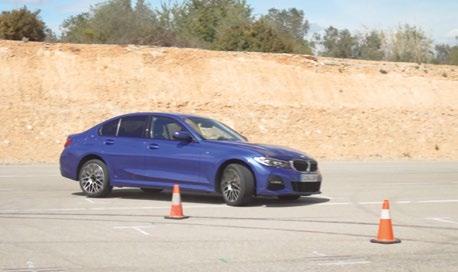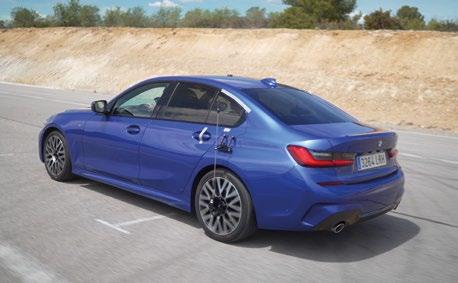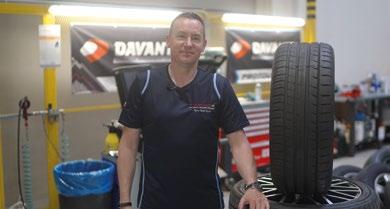
2 minute read
DEVELOPMENT TESTING AND
For a runflat tyre to be legal for sale in Europe, it must conform to the ECE Regulation 30 Annex 7. This standard states that in laboratory controlled conditions, the tyre must pass an endurance test, running on a steel drum for 60 minutes without deflation. The test also assesses the variation in the tyre’s circumference before and after the test to verify whether deviation is within the tolerance levels to pass.
Not only has the Protoura Sport DSP Runflat passed this Drum Test, Davanti has also conducted a series of additional tests - going above and beyond the usual requirements for a runflat tyreto ensure the tyre reaches OE standards for runflat technology. These are carried out at Davanti’s European proving grounds, Applus+ IDIADA, which boasts some of the best summer testing facilities in the world.
Runflat tyres can often compromise ride comfort among other tyre characteristics, but Davanti ensures the Protoura Sport DSP Runflat can overcome this. To ensure Davanti’s trademark handling, longevity and reliability characteristics, the Protoura Sport DSP Runflat is stringently tested in a series of standard wet and dry tests, assessing its performance capabilities under normal inflation:
Aquaplaning
Wet braking
Dry braking
Wet handling
These standard tests as well as the below further tests were carried out using a BMW 3-series test vehicle, carrying a driver and a passenger in both wet and dry conditions.
RIM
ROLL-OFF
This test determines whether the deflated tyre stays mounted to the rim when undergoing lateral forces, a factor that cannot be evaluated by the standard drum test alone. This test is carried out by performing J turns with a tyre under zero inflation pressure to ensure it remains mounted to the rim at speeds required for OE standards.
Protoura Sport DSP Runflat exceeds the 50 km/h level required for many OE applications.
Protoura
Testing Vechicle: BMW 3 Series (G28)
Rpa Sensitivity Testing
This test determines the variance in tyre circumference between inflated and uninflated states.

For correct compatibility with vehicles which rely on tyre defect (RPA) sensors to warn drivers that a tyre has deflated, it is vital that the performance of the tyre is within the bounds expected by the vehicle's sensors.

Protoura Sport DSP Runflat has been tested using industry-leading equipment and methods, to ensure the tyre is well within the tolerance bounds of RPA sensors.
POP-ON PRESSURE
Wheels designed for use with runflat tyres have an additional hump which works in conjunction with the tyre’s bead to help retain the tyre on the rim, even when driven in an uninflated state.
Precise calibration of the tyre’s bead tension is essential to facilitate correct tyre retention, whilst still requiring a safe amount of pressure to mount on the rim.
Davanti has ensured that Protoura Sport DSP Runflat is easy to mount and dismount, whilst maintaining sufficient force on the wheel for reliable operation.
Excellence Guaranteed By Independent Testing
Davanti has collaborated with independent British automotive testing organisation, TREAD, in order to assess the tyre’s quality of performance and resilience. Since 2017, TREAD has been commissioned by Davanti to manage its product testing schemes and prototype development.



